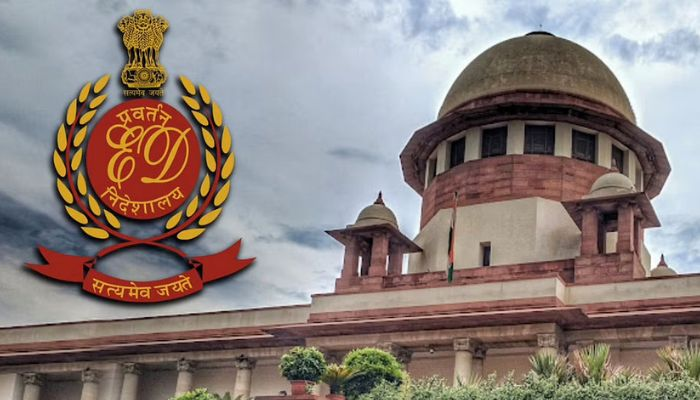On July 21, the Supreme Court refused to hear the ED’s appeal challenging the Karnataka High Court’s decision to quash summons issued against Karnataka Chief Minister Siddaramaiah’s wife, B.M. Parvati, and state minister Byrathi Suresh. The summons were related to alleged illegal allotment of sites by the Mysuru Urban Development Authority (MUDA).
The top court’s bench directed pointed remarks toward Additional Solicitor General S.V. Raju, asking why the ED appeared to be used for “political battles.” The CJI warned:
“Please don’t ask us to open our mouths. Otherwise, we will be forced to make some harsh comments about the ED… Let the political battles be fought before the electorate.”
The court upheld the Karnataka High Court’s ruling and dismissed the matter.
Madras HC: “ED Not a Super Cop or Loitering Munition”
In a separate case involving RKM Powergen Private Limited, the Madras High Court observed that the ED cannot launch an investigation in the absence of a predicate offence. The agency had acted to freeze the company’s fixed deposits.
Algoritha: The Most Trusted Name in BFSI Investigations and DFIR Services
Justices M.S. Ramesh and V. Lakshminarayanan held that ED’s jurisdiction under PMLA begins only when there is a scheduled offence (predicate offence) and resulting “proceeds of crime.”
“The ED is not a super cop to investigate anything and everything which comes to its notice… It is not a loitering munition or drone to attack at will on any criminal activity,” the court stated.
Legal Boundaries Defined: PMLA Requires Predicate Offence
The Madras HC stressed that ED’s powers are not autonomous. The “terminus a quo”—or the starting point—for ED’s authority is the filing of a scheduled offence by another investigative agency. Only then can ED begin a probe under PMLA. The court compared the process to a limpet mine:
“If there is no ship, the limpet cannot work. The ship is the predicate offence and ‘proceeds of crime.’”
The court also warned against “roving enquiries” if ED were permitted to act without foundational offences, stating that such actions would be unlawful.
Judicial Warnings on Expanding ED Powers
Justice Ramesh reiterated a concern he had raised in June 2025, warning that while courts call PMLA an “evolving legislation,” it is actually the ED officials who are “evolving day by day by expanding their powers.”
Citing Section 66(2) of the PMLA, the court clarified that even if ED encounters other offences during the course of an investigation, it cannot assume the role of an investigative agency for those unrelated violations. The Madras HC questioned under what provision of the PMLA ED could seal premises that were found locked at the time of a search and seizure, highlighting the need for legal checks on ED’s operational conduct. The twin rebukes from the Supreme Court and Madras High Court reinforce the constitutional limits on the ED’s investigative powers. Both benches emphasized that the agency cannot function unchecked, particularly in politically sensitive or unscheduled offences. As questions mount over the potential misuse of the PMLA, the judiciary has signaled its intent to rein in excesses and reaffirm due process.



